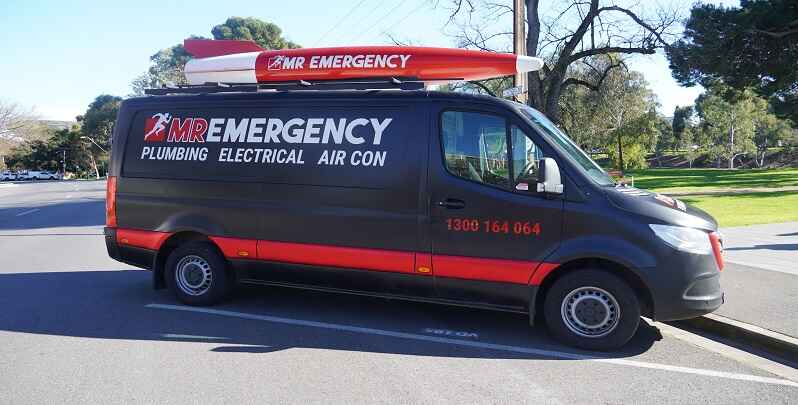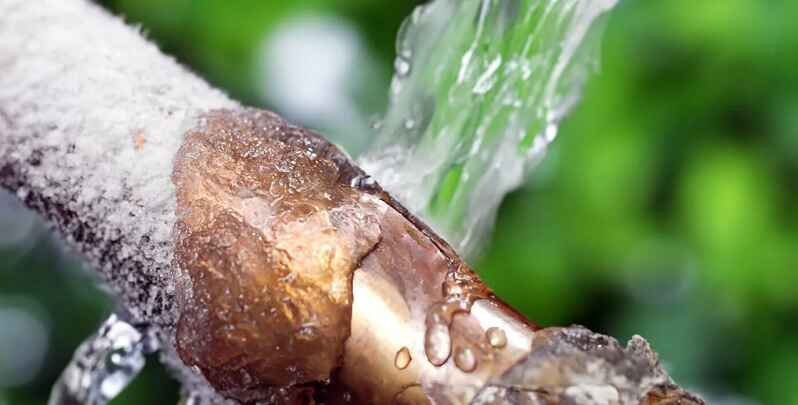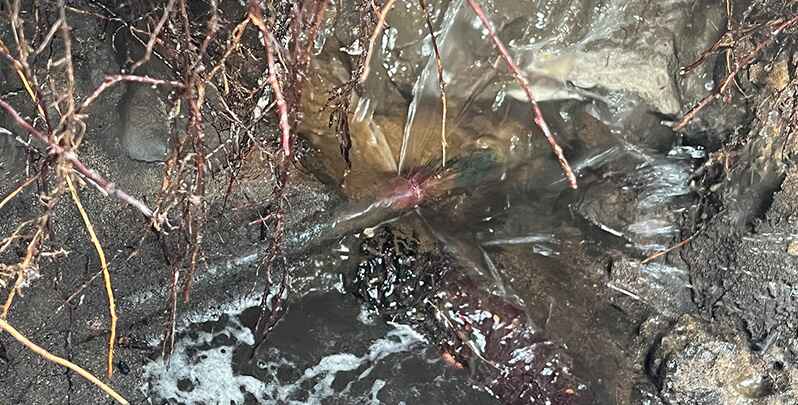
Common Causes of Pipe Bursting
Pipes bursting in your home can be a plumbing nightmare, causing extensive damage and unexpected repair bills. Understanding the root causes of pipe bursts is essential for every homeowner.
In this comprehensive guide, we’ll delve into the various factors that can lead to pipes bursting and provide you with valuable insights to protect your plumbing system.
Importance of Understanding Pipe Bursts
Pipes are the unsung heroes of our homes, quietly delivering fresh water and carrying away waste, allowing us to enjoy modern conveniences.
But when they fail, the consequences can be disastrous. Imagine water gushing from blocked pipes into your living room, damaging your possessions and creating an expensive mess to clean up.
Understanding why pipes burst is crucial because it empowers you to take preventive measures to save you from disasters.
Overview of the Causes and Consequences of Burst Pipes
A burst pipe can occur for various reasons, and each cause has its own set of preventive measures.
So, why do pipes burst? We’ll explore common causes such as freezing temperatures, corrosion, high water pressure, age, wear, and physical damage to exposed pipes.
By understanding these causes and their effects, you’ll be better equipped to protect your home from the havoc a burst pipe can wreak.
Freezing Temperatures
Cold winter days can be beautiful, but they can also wreak havoc on your plumbing system. When water inside your pipes freezes, it expands, exerting immense pressure on the pipe walls. This pressure build up can lead to cracks or even a complete rupture of frozen pipes.
While it is less of a problem in Australia than the northern hemisphere, our winter temperatures can still cause burst pipes through freezing.
To prevent freezing pipes, insulate them properly, especially in unheated areas like basements and attics. Additionally, allow a trickle of water to flow from your faucets during cold spells to keep the water moving.
Corrosion
Over time, pipes can deteriorate due to corrosion, particularly in older homes with metal pipes. Corruption weakens the pipe material, making it prone to leaks and bursts.
Regular maintenance and using corrosion-resistant materials can significantly extend the lifespan of your pipes. Inspecting your lines for signs of corrosion is essential in preventing unexpected outbreaks burst water pipe.
High Water Pressure
While good water pressure is necessary for efficient water flow, excessive water pressure can strain your pipes. Can it make water pipes burst? In some cases it can.
Excessive force of water bill can weaken the pipe walls and joints, eventually causing them to fail. Installing a pressure-reducing valve (PRV) can help regulate water pressure, protecting your pipes from the strain.
Age and Wear
Pipes, like all things, have a finite lifespan. Over the years, they can deteriorate due to wear and tear. Older lines are particularly vulnerable to bursting. Signs that your pipes may be at risk due to age include discolouration, rust, or visible wear.
Consider replacing ageing pipes or conducting regular inspections to catch issues early if you have an older home.
Physical Damage
Accidents happen, and construction work can sometimes lead to unintended damage to your plumbing pipes too. A simple nail through a line during home renovations can result in a burst.
Take precautions when working near your plumbing system, and if you suspect damage has occurred, address it promptly to prevent an outbreak.

Signs of an Impending Pipe Burst
Early detection of pipe issues is key to preventing catastrophic failures. Signs of an impending pipe burst include:
- Decreased water pressure: A sudden drop in water pressure can indicate a leak or impending burst or broken pipe.
- Water discolouration: Rusty or discoloured water can signal water pipe with corrosion.
- Unexplained water puddles: If you notice unexplained wet spots or puddles in your home, investigate immediately. This is potentially dangerous near electrical appliances.
- Strange sounds: Gurgling or hissing sounds in your water supply or pipes may indicate a problem.
- Visible pipe damage: Cracks, bulges, or visible damage on pipes damaged pipe, are clear warning signs.
Importance of Early Detection and Action
Identifying these warning signs and taking prompt action can prevent a minor issue from becoming a major crisis. Regularly inspect your water meter and plumbing system and address any anomalies immediately.
Early detection can save you time, money, and the hassle of dealing with extensive water damage. The important thing is knowing when to call a plumber.
Steps to Prevent Pipes from Bursting
Here are some of the key steps to take to prevent a pipe from bursting:
- Insulating pipes: Proper insulation is your first defence against pipe bursts during freezing temperatures. Using foam or fibreglass insulation, insulate pipes in unheated areas like basements, crawlspaces, and attics. Pay special attention to areas near exterior walls.
- Regular maintenance: Regular maintenance is vital for preventing pipe issues. Create a checklist for routine inspections, including checking for signs of corrosion, leaks, or wear and tear. Schedule professional inspections annually to catch problems early.
- Temperature regulation: Maintaining an ideal temperature within your home can prevent freezing water pipes below. Ensure that your home’s heating system is in good working order. During freezing weather, open cabinet doors to allow warm air to reach pipes under sinks.
- Pressure control: Install a pressure-reducing valve (PRV) to keep water pressure within a safe range. Monitor your water pressure periodically and adjust the PRV to prevent excessive force from hot water from damaging your pipes.
- Replacement and upgrades: Consider replacing aging pipes with newer, more durable materials like PEX or PVC. Modern materials are less prone to corrosion and wear, providing longevity and peace of mind.

What to Do If a Pipe Bursts
Don’t panic. That’s the first thing. Then you can follow these important steps.
Emergency Response
If a pipe bursts in emergency plumbing services in your home, follow these steps:
- Shut off the water: Locate and turn off the main water valve to stop the water flow.
- Drain faucets: Open faucets to relieve pipe pressure and drain excess water.
- Call a professional: Contact a licensed plumber to assess the damage and make necessary repairs.
- Address water damage: Begin cleaning up and addressing water damage immediately to prevent mould and structural issues.
Safety Measures
- Be cautious of electrical hazards in flooded areas.
- Wear protective gear, including gloves and eye protection.
- Avoid contact with contaminated water.
Preventing Plumbing Nightmare
This comprehensive guide explored the various causes of pipe bursting and provided valuable insights into preventing this plumbing nightmare.
Whether it’s protecting your pipes from freezing temperatures, corrosion, high water pressure, or physical damage, understanding the risks of burst water pipes and taking preventive measures is the key to maintaining a healthy plumbing system.
By staying vigilant, performing regular inspections, and knowing what to do in an emergency, you can safeguard your home from burst pipes’ costly and disruptive consequences. Don’t wait for a disaster to strike – take proactive steps to protect your plumbing system today.
For more information, contact the burst pipe specialists at Mr Emergency.
Please note: This information is provided for advice purposes only. Regulations differ from state to state, so please consult your local authorities or an industry professional before proceeding with any work. See our Terms & Conditions here.


